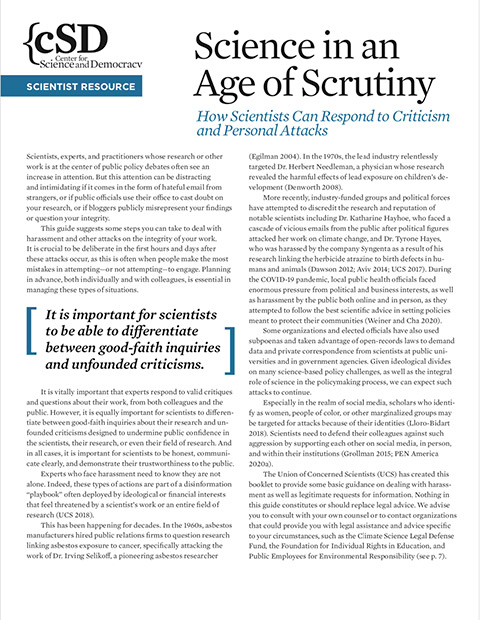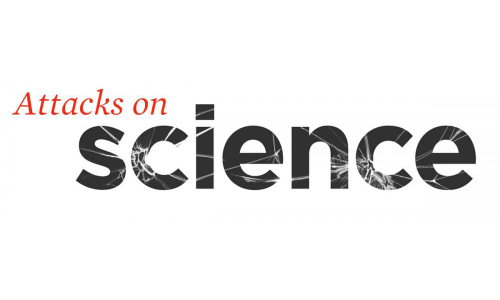Scientists today are under more scrutiny than ever. When their research ends up at the center of a contentious public policy debate, scientists receive many legitimate requests for more information, but they are also sometimes attacked by individuals who do not like the research results. These attacks can take multiple forms—emails, social media posts, blogs, open-records requests, even subpoenas—but the goals are the same: to discredit the research by discrediting the researcher.
Fortunately, there are steps scientists can take to protect their reputations and the integrity of their research while contributing their expertise to the critical issues of the day. The 2020 edition of the UCS guide, Science in an Age of Scrutiny: How Scientists Can Respond to Criticism and Personal Attacks, was created to help scientists who find themselves in the spotlight make smart decisions about how to respond.
The guide offers checklists of steps scientists should take (and avoid) when confronted with several different kinds of scrutiny:
Harassing correspondence, including emails or letters that harass scientists by attacking their research, wasting their time with endless questions, or making threats.
Harassment on social media platforms, which can range from online trolls commenting on your posts to an organized social media attack.
Hostile bloggers whose posts misrepresent research, accuse the scientist of misconduct, or reveal personal contact information that readers can use to harass the scientist.
Demands for private information such as correspondence with peers about research. Such demands may come from individuals, organizations, companies, or government agencies.
Attacks through mainstream sources such as news media outlets or public officials.
Some recurring pieces of advice from the checklists:
- Respond calmly and constructively to valid criticism and inquiries about your work and field of research—but avoid getting pulled into debates with people who only seek to waste your time.
- When you do respond, do so through mainstream sources or on more neutral territory, such as your own blog.
- Use the resources available to you, such as non-profit legal counsel or your organization's public relations office, to help you determine the best strategy for responding.
- Remember that your work emails may become public in certain situations, and keep them accordingly professional.
- Keep records of harassing messages, and contact authorities if they become threatening.
Given the ideological divides on many science-based policy challenges, as well as the integral role of science in the policy-making process, we can expect attacks on scientists to continue—so it's important to be prepared for them.
Downloads
Citation
Kinser, Shea. 2020. Science in an Age of Scrutiny: How Scientists Can Respond to Criticism and Personal Attacks. Cambridge, MA: Union of Concerned Scientists. https://www.ucsusa.org/sites/default/files/2020-09/science-in-an-age-of-scrutiny-2020.pdf




